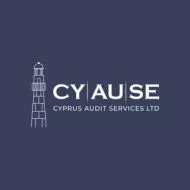The article intends to provide knowledge to the average reader in a summarised and simplified manner regarding the Company's Director's responsibilities.
According to legislation - Who is a Director?
- A director is a person appointed by the shareholders according to the articles of association and applicable laws and regulations, and/or
- A person who is acting in the shadows but is giving instructions to others, and/or
- A person that has been appointed by the shareholders but for various reasons does not appear on the Cyprus Registrar of Companies.
Section 2(1) of the Cyprus Companies Law, Cap113 states that “…a director includes any person occupying the position of a director by whatever name called”
So what does this mean?
It means that a director may not only be the person registered by the Cyprus Registrar of Companies but also if proven, a person who is giving effective instructions within the organization.
It is crucial to understand the magnitude of this provision as not only;
(i) decision-makers could be considered a director and be accountable according to the provisions of the law;
(ii) but also the treatment of the company, and primarily its tax residency status, could potentially change resulting in higher taxes than the favorable 12.5% Cyprus Corporation Tax Rate.
For instance, if a Cyprus company has 1 Cypriot director and the management and control of the company is in Cyprus then this company will be taxed at the normal 12.5% Cyprus Corporation Tax Rate.
If however, for whichever reason, it is proven by X overseas tax authorities that this company has also another director who is not registered or displayed in the Cyprus Registrar of Companies but it dictates the decision-making of the company then automatically:
- This company has 2 directors
- The management and control taking place in Cyprus could be challenged by this overseas authority
- The tax residency of the company, which is in Cyprus, could also be challenged
Note:
We are not aware of such cases taking place in Cyprus and it is not likely that such actions take place, given the difficulty to commence such proceedings and proving an argument, without serious reasoning behind it.
Types of Directors
The Law does not distinguish between different types of directors therefore in the “eyes” of the law there is only one type of director.
This means that all directors whether Executive, Non-Executive, or Nominee Directors are all the same and will be treated with the same weight based on a case-by-case case sciences-by-scenario.
Responsibilities of Directors
Directors' responsibilities lie towards the company and not towards the shareholders of the company.
This implies that the directors should take all necessary steps to ensure that the interests of the company are best served primarily towards its fulfillment, fulfillment of Creditor & Tax repayments, Money Laundering Laws & Regulations, and lastly Profitability and shareholder satisfaction.
In particular, the directors are responsible for:
Management of the Company
To Act in Good Faith (bona fide) with Due Care and Skill
The directors are expected to act in what they consider to be the company's best interest under their capacity and their credentials. Therefore not only they are expected to act according to the standard of a director but also if, for instance, they are qualified accountants or lawyers they would be expected to act with Due Care and Skill of their profession.
This is also illustrated by the case: Re City Equitable Fire Insurance Co, 1925, “a director need not exhibit in the performance of his duties a greater degree of skill than may reasonably be expected from a person of his knowledge and experience”.
- To Keep Proper Accounting Books and Financial Statements
- To Disclose any Conflicts of Interests & Dealings with the Company
- To Comply with all Local Laws & Legislation
- Such Laws and Legislation include CySEC, Transparency Requirements Law, Anti Money Laundering Law, Tax, VAT, Social Insurance Laws, and any other locally and internationally enforceable legislation affecting the company.
When Can the Directors Be Found Liable?
The directors can be found liable if they fail to demonstrate that they have been acting in good faith and with due care, faith, and towards the best interests of the company.
The directors can also be found liable in the following circumstances (just to name a few):
- Found Guilty of Gross Negligence or Recklessness
- Have Not Been Acting Honestly and Reasonably
- During Winding Up – in the event of Fraudulent Trading and Activities
- During Winding Up – in the event CreditorsCreditors' Obligations are not Fulfilled
- Taking part in Acts that are Ultra Vires? or Illegal
- Taking Undisclosed and non-Approved Commissions, Profits, and Claims
- Issuing General Powers of Attorney
- Not Monitoring Bank Transactions for Unusual Activities and Outflows
- Granting Loans or Approving Financial Decisions which are Not in the Best Interest of the Company
- Participating in Acts that Constitute Fraud Against the Minority and the Wrongdoers are the Directors Who Control the Company
- Passing Resolutions that Require Majority when such Majority is not Granted
- Participating in Acts that Infringe the Personal Rights of
Individual Shareholders
Extent of Liability
The liability of directors may be unlimited (section 194) provided the Memorandum & Articles of Association so provided (s195).
The liability of directors can be criminal, administrative, or civil.
Indemnification
Indemnification does not cover the fiduciary service provider against recklessness, not acting in the best interests of the company with the required due care and skill, especially towards the creditors of the company including local tax authorities.
Removal of Directors
The removal of directors can only take place by ordinary resolution where more than 51% of the votes are in favor.
Again, the Memorandum & Articles of Association prevail over any shareholders' agreement with the exception that different classes of shares may have been issued carrying different voting rights and weight.
A very important point to mention is that directors' resignation in the event of a dispute may not always be a good thing as by taking such action the director may leave the company to the decision-making of a shareholder who may not act in the best interests of the company and its creditors and as a result, if a case goes to court, the director might be considered liable for the wrongdoings of the company post-resignation.
How to mitigate the above
It is imperative that the directors fully understand their responsibilities and the framework that dictates them, primarily the Memorandum & Articles of Association of the Company.
The directors must understand fully and in detail the operations of the company or the group so that when they do make decisions or sign contracts and agreements they are in line with the best interests of the company, and they comply with Anti Money Laundering Laws and Local Regulations affecting the company.
It is crucial to comprehend that their duty is towards the company and not the shareholders and that their primary duty is towards the creditors of the company including third parties and tax authorities.
In addition, it is strongly advisable to ensure that they have a separate, “Directors & Officers” insurance policy (different than the professional indemnity) with an insurance company that truly understands fiduciary business and its associated risks.
Full disclosure and details must be provided to the insurance company before obtaining a quotation so that the director gets the necessary assurances about coverage and procedural details.
At this point, it is worth mentioning that such “Directors & Officers” insurances, only cover legal defense costs if the director is proven by the court to be non-guilty.
Directors and Shareholders' Misconceptions
- The directors are responsible for the company and not the shareholders.
- The directors are responsible for the daily management of the company whilst the shareholders merely have to participate at the AGM to approve the financial statements annually. It is important to keep this in mind as it illustrates the law's expectation of the responsibilities and roles of these two parties.
- Therefore, if the company becomes insolvent, it will be the directors' responsibility who manages/ed the company and not the shareholders who have entrusted the directors to do it for them!
Directors' guidelines and procedural framework are bound by the Memorandum & Articles of Association primarily which prevail over any shareholders agreements in place.
The content of this article is intended to provide a general guide to the subject matter. Specialist advice should be sought about your specific circumstances.

